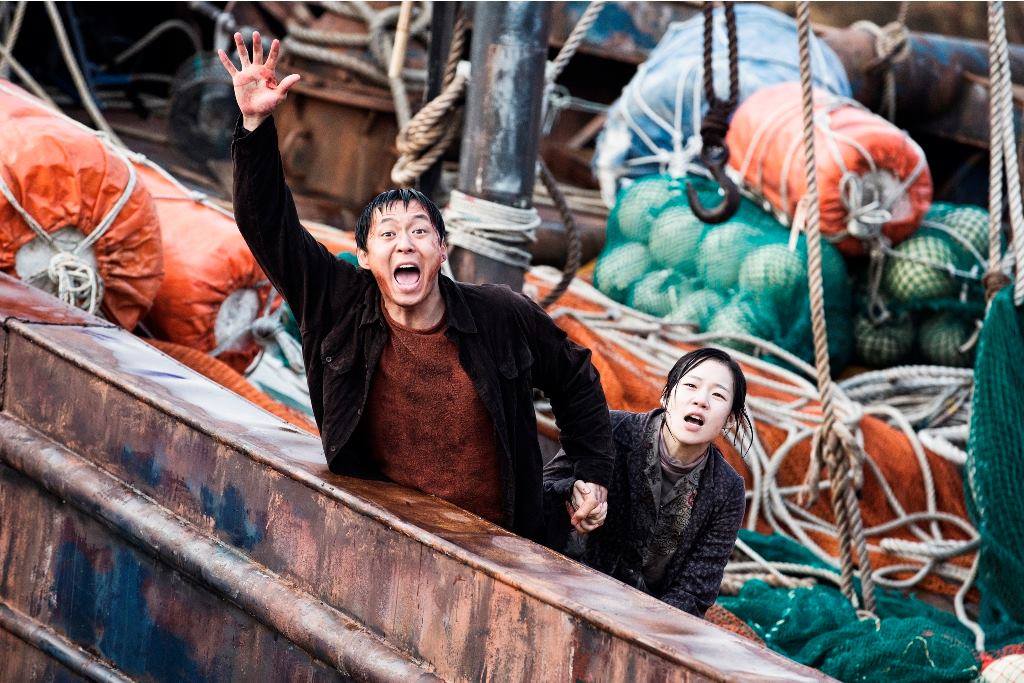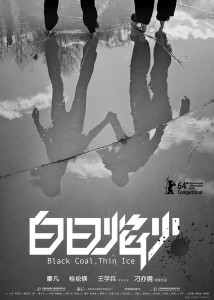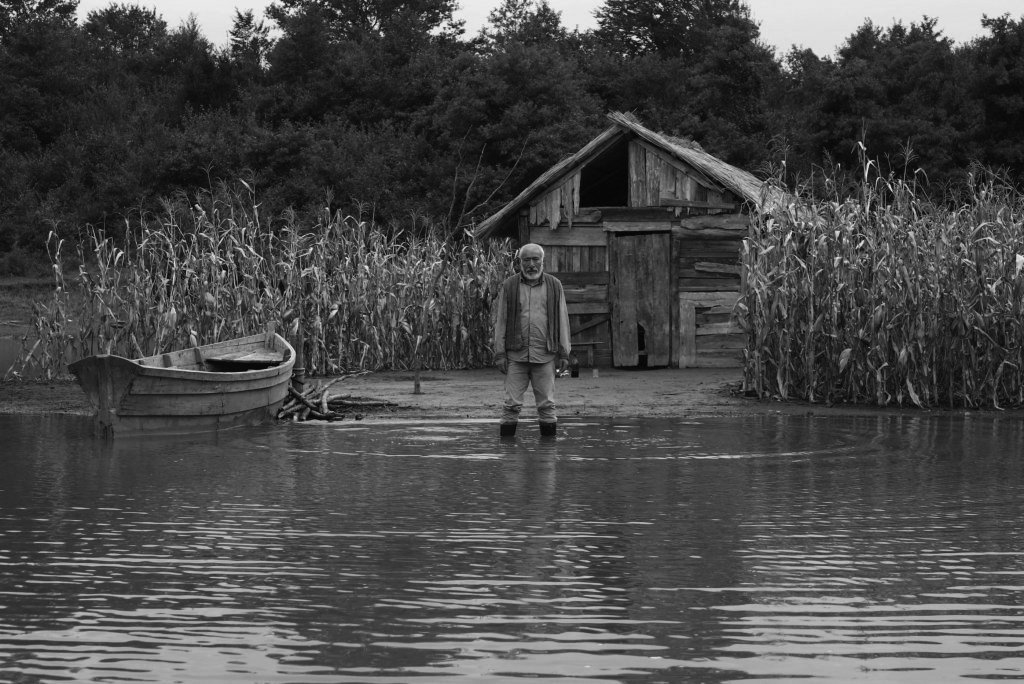By Josh Friesen (Contributor) – Email
Print Edition: October 15, 2014

Haemoo
South Korean cinema is flourishing. Chan-wook Park and Joon-ho Bong, South Korea’s leading auteurs, have successfully transitioned into the English language with Stoker and Snowpiercer, introducing a larger audience to their respective canons. Haemoo’s success on the festival circuit and its selection as Korea’s entry for the foreign language Oscar is probably due in a large part to Joon-ho Bong’s credit as producer and screenwriter.
Haemoo (Sea Fog) is based on a stage play, which is in turn based on a real event that occurred in 2001. Judging by the collective gasp in the VIFF screening I was in, I assume most were not aware of what event it was based on. All I will say is that the incident is shocking and traumatic; this is not a film for the squeamish.
The film centres on Captain Kang and his fishing crew. He is about to lose his boat due to lack of finances, so in an act of desperation he agrees to the job of smuggling Chinese-Korean immigrants into the country. His crew is not told until they are at sea.
First-time director Sung Bo Shim competently handles the film, employing a straightforward, no-bullshit approach to storytelling that would make Clint Eastwood proud. The set pieces are solid, especially the ship itself, although the film would have benefitted from a cinematographer who wasn’t afraid to take a step back. The camera is often too close to the action, and three uses of shaky-cam are three too many.
Haemoo has its flaws, but it’s properly paced and well-told. The audience at the screening seemed to love it, applauding loudly at the finish. I look forward to seeing what Sung Bo Shim does next, preferably with a slightly larger budget.

Black Coal, Thin Ice
In snow-covered streets surrounded by perpetual darkness, detectives and suspects are made distinguishable only by the soft glow of neon signs. Faces are shrouded by shadow; characters’ motives are unclear. We are in very classic noir territory in Black Coal, Thin Ice.
A brutal murder occurs in Northern China. Severed limbs appear simultaneously across the country in coal plants. The investigation into the murder is botched, leaving detective Zhang Zili injured, ashamed, and without a job. Five years later, body parts are again found in coal plants. Now an alcoholic working as a security guard, Zhang once again finds himself in pursuit of the mysterious mass murderer. The only connection between the two cases is a beautiful dry cleaning assistant Wu Zhizhen, who soon becomes the object of Zhang’s obsession.
An intriguing combination of neo-noir and Chinese realism, Black Coal, Thin Ice demonstrates director Yi’nan Diao’s genre literacy. From the lighting, to the troubled anti-hero, to the femme fatale, the film is full of noir tropes. What makes the film unique is the camera’s continual shift to the mundane. Unlike the modern Tarantino-inspired trend, the revelations and acts of violence are down-played. Plot takes a back seat to atmosphere as the audience is immersed in a bleak, nihilistic vision of modern China.
Winner of the Golden Bear at the Berlin film festival, Black Coal, Thin Ice has been a hit with critics, but it’s hard to see it winning any audience awards. The slow pace and dark, defeatist worldview will be a turn-off for most audiences, but if you don’t view those as detractors, and if you are a fan of noir, then this is a film to see.

Corn Island
Every year the Enguri River drops to reveal small fertile islands. Because the river marks the natural border that separates Georgia from Abkhazia, these islands are unclaimed territory. Peasants come every year to live on them during the growing season, attempting to harvest enough corn to survive the winter. Two problems face them: the fact that the two nations have been in some form of conflict since the ‘90s, and the rising waters of the Enguri.
Clearly influenced by the likes of Dreyer and Bela Tarr, Director George Ovashvili’s slow-burning, minimalist thriller takes place entirely on and around one of these tiny islands. We follow an old man, referred to only as Grandpa, and his granddaughter as they methodically bring supplies to the island and construct a small shack. They will have to live on this island in order to tend to and protect their little patch of corn.
The film is low on plot and has nearly no dialogue, and yet the sweeping cinematography gives the film an epic tone. This island means everything and nothing. The river creates and the river destroys. The island is a microcosm of man against nature, of the political instability of the region, and of life itself. The amount Corn Island is able to achieve with so little is commendable.
A grand achievement, Corn Island hints at a bright future for Georgian cinema, and puts George Ovashvili on the radar as a director to watch.


